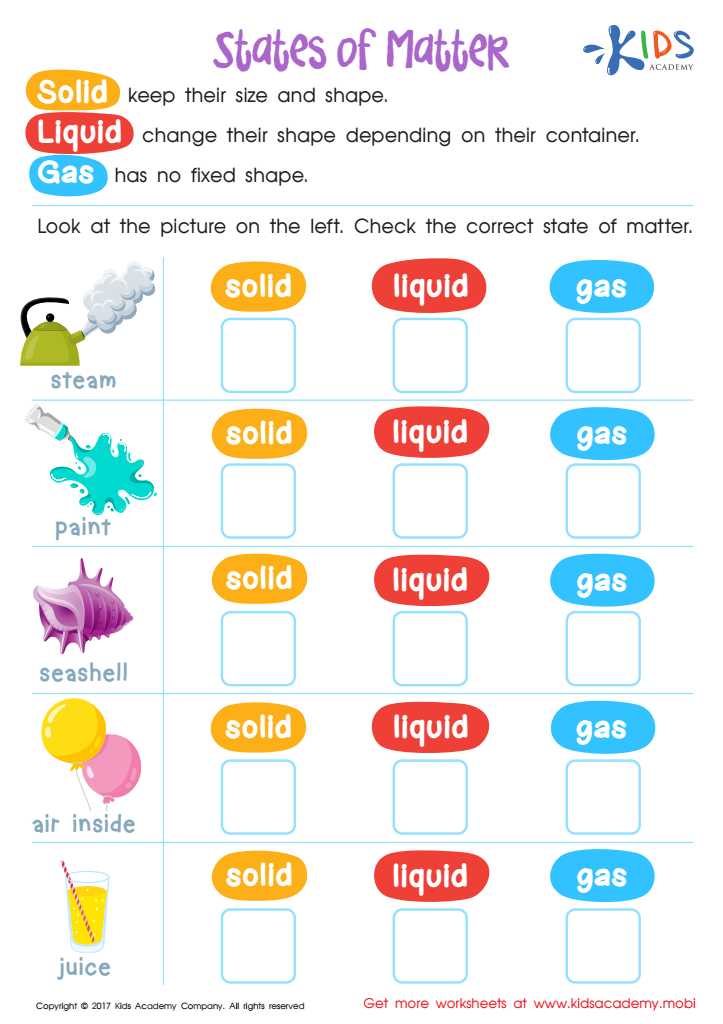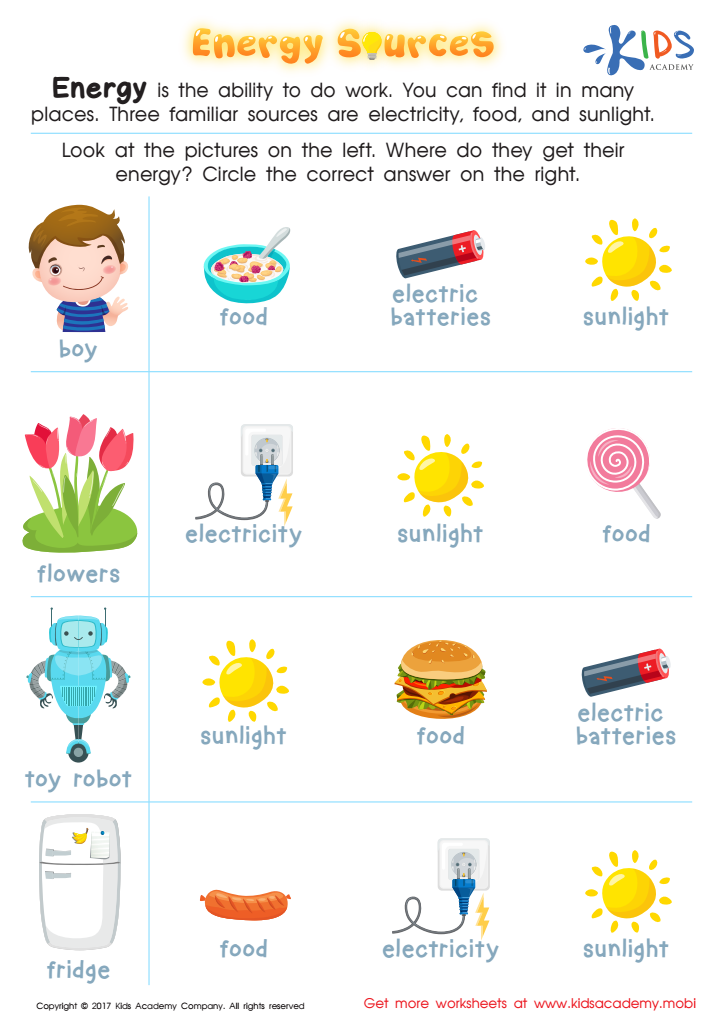Physical Science Worksheets for Ages 3-9
3 filtered results
-
From - To
Discover our engaging Physical Science Worksheets tailored for children ages 3-9! Designed to spark curiosity about the world around them, these worksheets cover essential concepts such as matter, energy, and forces through fun, interactive activities. Each worksheet encourages hands-on learning and exploration, allowing young minds to investigate and understand the fundamental principles of physical science. Perfect for fostering STEM skills, our resources can be used in classrooms or at home to make learning enjoyable and effective. Help your child develop critical thinking and observation skills while exploring the wonders of science through colorful and engaging worksheets! Start your child’s scientific adventure today!


Physical Science: States of Matter Worksheet


Sink or Float Printable


Energy Sources Printable
Parents and teachers should prioritize Physical Science for children aged 3-9 because early exposure to scientific concepts fosters curiosity, critical thinking, and problem-solving skills, laying the foundation for future learning. At this age, children are naturally inquisitive, asking questions about the world around them. Introducing Physical Science helps nurture this curiosity by encouraging exploration and experimentation, making learning both engaging and fun.
Studying Physical Science enhances children's understanding of fundamental concepts such as matter, energy, forces, and simple machines. This knowledge is essential for their comprehension of everyday phenomena, from why balloons float to how cars move. Furthermore, early science education promotes hands-on activities, which support cognitive development. By engaging in experiments, children develop fine motor skills, learn to observe carefully, and practice hypothesizing and drawing conclusions.
Additionally, early exposure to science cultivates a positive attitude toward learning, promoting academic success in later years. It can empower children to appreciate the scientific process and see its relevance in their lives, as well as inspire future interest in science and technology careers. Thus, integrating Physical Science into the curriculum during these formative years is crucial for holistic development and lifelong learning.
 Assign to My Students
Assign to My Students















